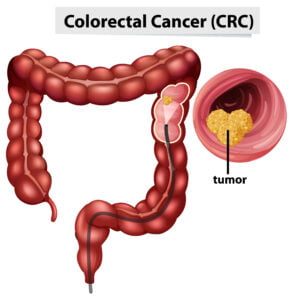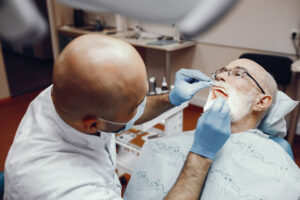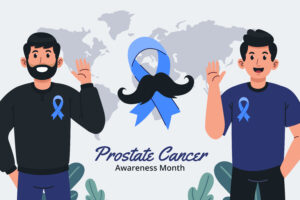Screenings That All Men Should Have: Men are notorious for neglecting their health. Whether it’s skipping doctor’s appointments, ignoring aches and pains, or prioritizing work over well-being, this trend can have serious consequences. Preventive screenings are crucial for early detection of many health issues, especially cancers. Let’s delve deeper into some essential screenings all men should consider, along with information on why they’re important and how to navigate the decision-making process.
Cancer Screenings: Understanding the Threats and Early Detection Strategies
- Testicular Cancer: This is the most common cancer among young men (aged 15-35). Early detection is paramount for successful treatment. Perform a monthly self-examination during a shower check for lumps, changes in size, or pain in the testicles. If you notice any abnormalities, discuss them with your doctor at your annual checkup. Don’t hesitate to bring up any concerns – early intervention is crucial.
- Prostate Cancer: The American Urological Association (AUA) recommends discussing prostate cancer screening with your doctor at age 40 for average-risk men, 45 for African American men or men with a family history, and 40 for men with a strong family history. Here’s a breakdown of the two main screening options:
- Digital Rectal Exam (DRE): During a DRE, the doctor inserts a gloved finger into the rectum to feel the prostate for abnormalities like lumps or hardening. It’s a quick and relatively painless procedure, but some men might find it uncomfortable.
- Prostate-Specific Antigen (PSA) blood test: This test measures the level of PSA, a protein produced by the prostate. Elevated PSA levels can indicate cancer, but they can also be caused by other factors like infection or inflammation. It’s crucial to understand that a high PSA doesn’t necessarily mean cancer, and further tests might be needed for a definitive diagnosis.
 The Pros and Cons of Prostate Cancer Screening:
The Pros and Cons of Prostate Cancer Screening:
- Benefits: Early detection of prostate cancer allows for potentially curative treatment options like surgery or radiation therapy.
- Drawbacks: PSA tests aren’t perfect. They can lead to unnecessary biopsies (tissue samples taken for further analysis) that might reveal slow-growing cancers that wouldn’t cause harm during a man’s lifetime. Additionally, treatment for slow-growing cancers can come with side effects like incontinence or erectile dysfunction.
The Takeaway: Discussing the potential benefits and drawbacks of prostate cancer screening with your doctor is crucial. Consider your age, overall health, family history, and risk tolerance when making this decision. There’s no one-size-fits-all approach, and open communication with your doctor is key.
-
Colorectal Cancer:
This is the second leading cause of cancer death in men and women combined. Screening for colorectal cancer typically begins at age 45. There are various options available, each with its own advantages and limitations:
- Colonoscopy: This procedure involves inserting a long, flexible tube with a camera into the rectum and colon to inspect for polyps (abnormal growths) that could develop into cancer. While highly effective for both detecting and removing polyps, a colonoscopy requires bowel preparation and sedation.
- Fecal Occult Blood Test (FOBT): This test checks stool samples for hidden blood, a potential sign of polyps or cancer. It’s non-invasive and easy to do at home, but it’s less sensitive than a colonoscopy and might require further investigation if positive.
- Cologuard DNA Test: This relatively new option involves collecting a stool sample to test for DNA markers linked to colorectal cancer and precancerous polyps. It’s non-invasive and convenient, but it might not detect all types of colorectal cancer, and a colonoscopy might still be needed for confirmation.
- FIT Test: The fecal immunochemical test (FIT), also called an immunochemical fecal occult blood test (iFOBT), is a stool test that also detects occult (hidden) blood in the stool. It is also known as a hemmocult test. Detecting blood in the stool is important because it can be a sign of precancerous polyps or colorectal cancer. Blood vessels on the surface of larger polyps or cancers are often fragile and may be damaged by passing stool. The damaged blood vessels usually release a small amount of blood into the stool. This blood is often not visible to the naked eye, which is why these tests are helpful.
Screenings That All Men Should Have: Choosing the Right Colorectal Cancer Screening:

Discuss the best option for you with your doctor based on your individual risk factors and preferences. Factors to consider include family history, lifestyle habits (smoking, diet), and any existing health conditions.
Beyond Cancer: Essential Screenings for Overall Health
- Blood Pressure: High blood pressure often has no symptoms, but it can significantly increase your risk of heart disease, stroke, and kidney problems. The American Heart Association recommends having your blood pressure checked at least once a year, more frequently if you have certain risk factors like obesity, smoking, or a family history of high blood pressure. Early detection and management of high blood pressure can help prevent serious health complications down the line.
- Cholesterol: High cholesterol levels contribute to plaque buildup in arteries, increasing the risk of heart disease and stroke. The American Heart Association recommends all adults aged 35 and over have their cholesterol checked
- Diabetes: Diabetes affects how your body regulates blood sugar. Early detection and management are crucial to prevent complications like heart disease, stroke, blindness, and kidney failure. Your doctor may recommend a blood sugar test, particularly if you have a family history of diabetes, are overweight or obese, or have risk factors like high blood pressure.
- Sexually Transmitted Infections (STIs): STIs can have serious health consequences if left untreated. Regular STI screenings are recommended for all sexually active men, especially those with multiple partners or who don’t use protection consistently. Common STIs tested for include Chlamydia, Gonorrhea, HIV, and Syphilis.
 Taking Charge of Your Health
Taking Charge of Your Health
Preventive screenings are an investment in your future health. Here are some tips to take charge:
- Schedule regular checkups: Aim for annual checkups with your doctor. This is a perfect opportunity to discuss any health concerns and schedule necessary screenings.
- Know your family history: Talk to your family members about any health conditions that run in the family. This information can help your doctor determine your risk factors for certain diseases and recommend appropriate screenings.
- Don’t be afraid to ask questions: Understanding the purpose and limitations of each screening test empowers you to make informed decisions about your health. Ask your doctor to explain the risks and benefits of each test before proceeding.
- Early detection is key: Catching a health issue early often leads to better treatment outcomes. Don’t ignore potential symptoms or put off screenings due to fear or discomfort.
Remember: Taking care of your health is not selfish, it’s essential. By prioritizing preventive screenings and adopting healthy habits, you’re investing in a longer, healthier life. Don’t wait until you feel unwell to seek medical attention. Schedule an appointment with your doctor today and discuss the screenings that are right for you.




